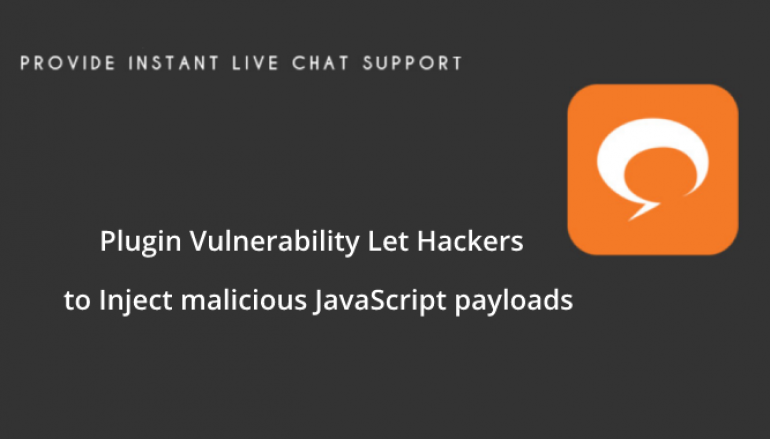
Cross-site Scripting Vulnerability in WP Live Chat Plugin Let Hackers to Inject Malicious JavaScript Payloads
An Unauthenticated Persistent Cross-Site Scripting vulnerability in WP Live Chat Support WordPress plugin allows hackers to inject malicious JavaScript payloads in the vulnerable website.
More than 60,000+ users used the plugin, it allows web admins to chat with visitors for free. An attacker can exploit the vulnerability in the plugin without having an account in the vulnerable site.
Sucuri discovered the vulnerability in WP Live Chat plugin during their routine research audits, the existence of live exploits for this vulnerability remains unknown.
The bug can be exploited by abusing the unprotected admin_init hook functions, in this particular vulnerability, the function wplc_head_basic updates the plugin settings without using proper privilege checks,” reads Sucuri blog post.
The bug allows attackers to inject the malicious scripts in the pages where the live chat support appears. Attackers can take advantage of it and insert malicious scripts in multiple locations of the affected site.
To protect against this vulnerability, users are recommended to update with their plugin to version 8.0.27 as soon as possible. Sucuri reported the bug on April 30, 2019, and the patches were released on May 15, 2019.
Recently attackers exploited Yuzo Related Posts plugin to insert code into vulnerable sites which redirected visitors to a variety of malicious resources, including fake support sites, malware disguised as updates, and advertising.
Thousands of WordPress websites get hacked every day, so securing your blog must be top of mind. By investing your time in security, you’re making it easier for yourself, as dealing with a website breach is a lot worse than preventing it.
This post Cross-site Scripting Vulnerability in WP Live Chat Plugin Let Hackers to Inject Malicious JavaScript Payloads originally appeared on GB Hackers.






